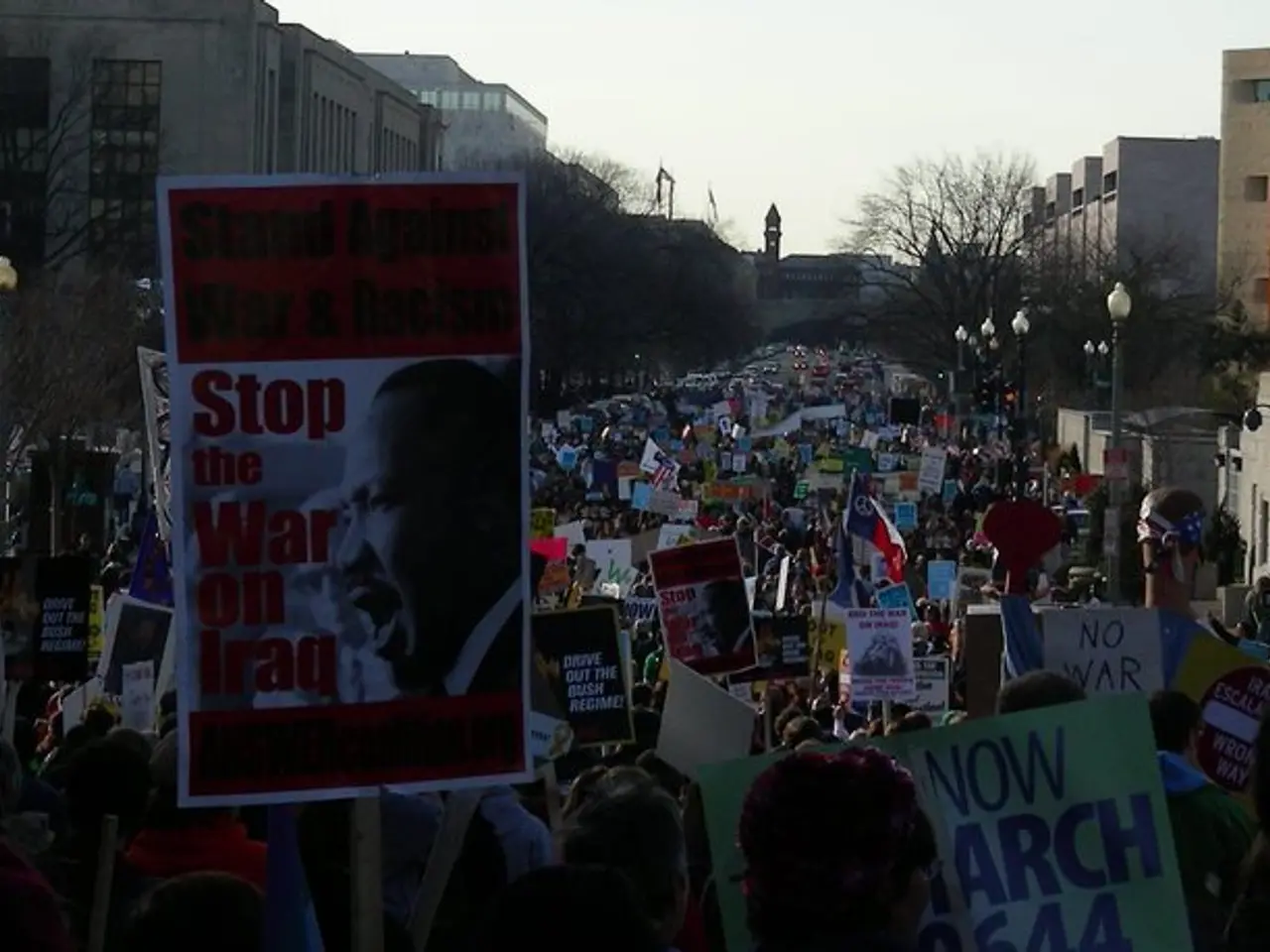Diplomatic Tussle: German Journalists Under Threat in Russia
Diplomatic tension escalates between Berlin and Moscow due to accusations of harassment against foreign journalists.
Berlin/Moscow - The communication gap between Moscow and Berlin is glaring in the Russian Foreign Ministry's summons of the German ambassador. Ambassador Andreas Michaelis had to make a second visit due to a mix-up, shedding no light on the fate of German journalists threatened with expulsion from Russia. The meeting, however, served as a platform for both sides to air their views.
In a statement after the meeting, the Foreign Ministry spokeswoman, Maria Sacharowa, shared her viewpoint on the residence-related procedures affecting Russian journalists in Germany. Ambassador Michaelis acknowledged the explanations given by the Russian Foreign Ministry.
Simultaneously, the Ambassador brought to light the hurdles faced by German journalists in Russia and presented a list of instances highlighting the Russian authorities' questionable behavior towards foreign correspondents, allegedly violating press freedom.
The root of the issue revolves around the treatment of correspondents of Russian state media in Germany, specifically a Kremlin-friendly media outlet on the EU sanctions list. The individual's residence permit has expired, and the German Immigration Office has refused to renew it. Reports suggest that he will be leaving Germany by the second half of August.
Additionally, the man's wife and daughter's passports have been confiscated, confirmed a spokesperson from the authority upon request. The man himself has reportedly complained about a house search in Russian media.
Moscow's Warning to German Journalists
The day prior, Foreign Ministry spokeswoman Sacharowa expressed that Germany was failing to uphold its obligations to protect press freedom and freedom of opinion. She accused Germany of administrative arbitrariness that now extends beyond journalists' families.
Sacharowa also hinted at retaliatory measures. At the St. Petersburg International Economic Forum last week, Sacharowa had already threatened punitive actions against German journalists. German journalists in Moscow were reportedly in the crosshairs.
Although the specific steps were to be communicated to the Ambassador during his visit, miscommunication marred the initial meeting. Michaelis returned to the Foreign Ministry building after ten minutes to locate an interpreter. Sacharowa joked that the ambassador seemed to not comprehend Russian.
Michaelis, who has been in his post since 2023, speaks Russian but not at a level sufficient for diplomatic negotiations. The language barrier can prove detrimental when making crucial arguments without an interpreter, as witnessed during Ukrainian President Volodymyr Zelensky's failed White House visit.
Michaelis, mindful of the interpreter, stated that the meeting would be conducted in English.
Two-hour Exchange - Minimal New Insights
The meeting began following the arrival of the interpreter from the embassy. After over two hours of discussion, Michaelis left the Foreign Ministry. Russian media, waiting for him outside the building, reported that the discussion was long and enlightening but provided no details about the outcome.
The German Foreign Office in Berlin refuted Russia's claims about the handling of correspondents from Russian state media by German authorities. "In contrast to the increasing repression of journalists in Russia, the principles of the rule of law and press freedom prevail in Germany," the Foreign Office declared. This stance was echoed by the German ambassador during his visit to the Russian Foreign Ministry.
However, the Russian Foreign Ministry maintained its stance. Michaelis was informed of Russia's protest against the treatment of its own journalists. The Foreign Ministry asserted that such unfriendly actions by German authorities would inevitably prompt a response from Russia. Thus, the possibility of expelling one or more German journalists remains imminent.
history has shown precedents. In December 2024, two ARD employees were forced to leave Russia following the non-renewal of residence permits for two men working for Russian state television in Berlin. Moscow responded by expelling the ARD employees, also falsely claiming that the broadcaster had been shut down. The German Foreign Ministry denied the broadcaster's closure and labeled the expulsion of ARD employees as "unacceptable." The Russians claimed that their residence permits had merely expired, and they could have appealed the decision.
In the broader context of this ongoing political drama, the Ukraine conflict and NATO tensions, Russia has been known to employ hybrid threats, cyber attacks, sabotage, and influence operations against perceived adversaries, creating a hostile environment for foreign correspondents, including Germans, potentially subjecting them to restricted access, surveillance, harassment, or detention under allegations tied to the dispute over journalistic conduct or media freedom.
Therefore, German journalists in Moscow may face an increasingly complex and pressure-filled environment during this diplomatic dispute, making it all the more crucial to adhere to best practices and prioritize reporting independently and accurately while ensuring a degree of caution.
- The Russian Foreign Ministry's spokeswoman, Maria Sacharowa, expressed her views on the residence-related procedures affecting Russian journalists in Germany, while Ambassador Michaelis presented a list of instances highlighting the Russian authorities' questionable behavior towards foreign correspondents in response to Moscow's warning to German journalists.
- Simultaneously, the Foreign Ministry maintained its stance on Russia's protest against the treatment of its own journalists, with the possibility of expelling one or more German journalists remaining imminent, following in the footsteps of the December 2024 expulsion of ARD employees.








